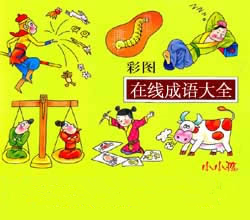英文读后感之茶花女读后感
“Camille”
I read the Chinese version of “Camille” a few years ago. At that time I was deeply moved by the main character Marguerite Gautier. “Camille” or “The Lady of the Camellias” by Alexandre Dumas, fils, is the story of Marguerite Gautier, a young courtesan, or kept woman, in Paris in the mid 1800's, and how she falls in love with a young man, Armand Duval, and then tries to escape from her questionable past. Unfortunately, it comes back to haunt her and she ends up returning to that life and dies painfully and alone, but with the knowledge that she was a noble woman at heart. When I first began to read the book, I did not care for Marguerite or her attitude or lifestyle, but as I got further into the narrative, I realized that her saucy attitude was a front to cover the lonely woman that she really was. She felt used, abused and unloved, until the gentle Armand Duval came into her life and showed her that he loved her as a person and not for what she could do for him. It must have taken GREat courage for Marguerite to leave the life she had lived for so long, knowing all along that it was probably too good to be true and would not last indefinitely. And it also showed that Marguerite really loved Armand Duval for she could even change herself for him.
However, happiness didn’t last for long. When M. Duval, Armand's father, came to her, pleading for her to leave Armand to save both Armand's reputation and that of his younger innocent sister, Marguerite saw a way to become pure of heart, if not in body. She felt that it was her duty, because she loved Armand so much, to do this even though it meant giving up her own happiness and hurting Armand temporarily. She reluctantly returned to her former life, knowing that some day Armand would forgive her. Sadly, she died in debt and basically alone, except for her one female friend, Julie Duprat, who helped her during her illness. She had her journal sent to Armand after her death, explaining why she had made the choices she had. I think Dumas's last few lines about Marguerite being the exception, not the rule were quite true, and I also aGREed with his view that while her lifestyle could not be condoned, we as a society assume that all of these type of women are cold and heartless, while this may not always be the case. A person can make the wrong choices in life when they are young, and try to redeem themselves, but sometimes past situations prevent them from changing their lives, even though they desperately wish to do so. This applies to both men and women in many different types of circumstances: involvement in crime; drug or alcohol abuse; gambling; prostitution; financial problems; poor marriage choices; etc. And this is the fact, which exists in the whole society.
As far as the other characters in the book, I think Marguerite was right in saying that no one truly cared about her, but only wanted something from her, the only exceptions being Armand and Julie Duprat. Of course, the Comte de G. and Comte de N. wanted her body and appearance. The Duke needed to “wake up and smell the coffee” and realize that she could never replace his dead daughter. If he truly cared, he could have helped her leave her lifestyle without “keeping” her himself. And lastly, Prudence was a blood-sucking leech who used Marguerite almost worse than the men. I also think she was jealous of the fact that Marguerite had so much more courage than herself and someone truly loved her.
热门作文成语素材
- 匪夷所思 匪:不是;夷:平常。指言谈行动离奇古怪,不是一般人根据常情所能想象的。
- 分我杯羹 羹:肉汁。楚、汉相争时,刘邦答项羽的话。比喻从别人那里分享一分利益。
- 傲雪欺霜 形容不畏霜雪严寒,外界条件越艰苦越有精神。比喻经过长期磨练,面对冷酷迫害或打击毫不示弱、无所畏惧。傲,傲慢、蔑视。
- 匪夷匪惠 夷:殷末周初的伯夷;惠:春秋时鲁国的柳下惠。既不是伯夷,又不是柳下惠;不具备这两位贤人的品德。形容才德不高而又驾驭的人。
- 分茅裂土 原指古代帝王分封诸侯时举行的仪式。后称分封诸侯。
- 安分知足 安于本分,对自己所得到的待遇知道满足。
- 诽誉在俗 诽:指诽谤;誉:赞扬;俗:风气、习惯。诽谤或赞扬在于当时的风习。后来引申指风气、习惯的作用非常大。
- 百依百顺 什么都依从。形容一切都顺从别人。
- 分毫不爽 比喻没有丝毫差错。
- 笔下生花 比喻文人才思俊逸,写作的诗文极佳。
- 挨肩擦背 形容人多拥挤。
- 飞黄腾达 飞黄:传说中神马名;腾达:上升,引伸为发迹,宦途得意。形容骏马奔腾飞驰。比喻骤然得志,官职升得很快。
- 屏声息气 抑制着呼吸使不出声音。形容恭敬畏惧的神态。
- 肥马轻裘 裘:皮衣。骑肥壮的马,穿轻暖的皮衣。形容阔绰。
- 不茶不饭 不思饮食。形容心事重重。
